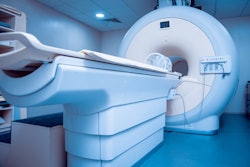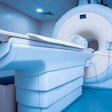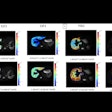In this column, Emanuel Kanal, MD, offers his perspective on an incident that involved the Los Angeles Police Department and an MR imaging center.
The world was recently exposed to yet another MR safety "breach," this time concerning the Los Angeles Police Department (LAPD). According to local coverage, members of the LAPD suspected illegal activities at what was actually an outpatient MR imaging center in the North Hollywood area in Los Angeles. After obtaining the necessary warrant from the local magistrate, the LAPD raided the imaging center. While performing their search of the premises, the rifle of one of the officers was pulled into the MRI suite and stuck to the scanner. An officer then elected to quench the system, the weapon was retrieved, and they left the room.
 Emanuel Kanal, MD
Emanuel Kanal, MD
Over the last number of decades, there have been plenty of safety issues, events, and injuries in MRI environments that were entirely avoidable and occurred purely because of operator error. And after more than 40 years since MRI was first introduced into the clinical arena, one would think -- or at least hope -- that we would have learned how to police (ouch!) ourselves by now and operate MRI in a far safer manner than the track record to date reflects; unfortunately, there are plenty of examples as to how "unseriously" MRI safety is treated. However, I would like to make the case that this particular event is not necessarily one of them.
In this unusual situation, police officers (rightly or wrongly) came to the conclusion that illegal activities were likely being committed at a given address. They procured permission to raid the premises in search of evidence of the crime, arriving at the site armed and prepared to defend themselves should violence erupt during the course of their executing a potentially dangerous operation. I imagine that emotions and tensions were high as the officers forcibly entered the premises and announced their intentions. Still not knowing what to expect, they encountered an outpatient MR imaging center -- at least ostensibly -- and proceeded to investigate further whether the facility was merely a front for the suspected illegal activities or indeed a legitimate business.
I would like to stress that, at least to the best of my knowledge, the radiology community does not have all the facts about this incident. It is entirely possible, for example, that while all these events were unfolding, the center's personnel might well have tried to warn the officers not to enter the room in which the MR scanner was housed. Even if they did, at this stage of the operation, in the eyes of the police executing someone warning them not to go into that room may have suggested that they were a criminal or accomplice: After all, if the site were actually merely a front for illegal activities, staff would of course put up a sign and instruct accomplices to warn the police not to enter a specified area that the police might otherwise wish to search. One can hardly blame the police officer, in the height of the raid, for not trusting such "advice" even if it had been offered, and for insisting on entering the room to search for signs of illegal activity.
In my decades of teaching MRI safety, I certainly ensure that all MRI staff anticipate medical emergencies that might arise in MRI centers. I advocate practicing emergent code responses on a regular basis so that MRI personnel are prepared for them and know what to do -- and not to do -- in such circumstances. I also ensure that they anticipate and recognize the potential for a fire to break out in or near MRI environments and stress that we educate fire-fighting personnel regarding the dangers of MRI environments and how to respond upon the arrival of emergency first responders.
We also know an emergent need for police presence in MRI environments might materialize. But emergency police presence is not nearly as typical or anticipated among MRI sites as are medical emergencies/codes or firefighters. Indeed, the event reported above represents a complicated situation where a police raid was conducted at an outpatient MR imaging center. During this sudden, unexpected police presence, confusion seems to have resulted among center staff as to how to best proceed to protect everyone involved, including the officers.
I am not personally prepared to fully assess what did or did not occur during this incident, and certainly, it is inappropriate to point fingers at anyone, either the police or the site's employees. Furthermore, I am not yet convinced that there is an "at fault" party in this situation. We can certainly try to educate law enforcement about safety around MR scanners, and I myself have done so on numerous occasions. But even this type of education is not a realistic long-term solution, due to the sheer number and types of law enforcement officers in this country and the constant turnaround in police personnel due to career changes, retirement, and hiring of new recruits.
I expect that this event will prove to be a learning opportunity for us all, one that could help us improve our formal recommendations as healthcare providers as to how we might respond to similar situations going forward. But for the immediate future and for the sake of all who were involved in that event, let's consider acknowledging it for what it seems to have been: An exceedingly unusual situation that could have happened anywhere and could have had a far worse outcome. And we should appreciate that it did not happen to us.
Because even with the best, most informed, knowledgeable, well-planned, and rehearsed response to the possibility of imaging center staff encountering a SWAT team that suddenly breaks into their facility, I am not convinced that officers would heed warnings or fare any better than did those members of the LAPD on the day this incident occurred.
A healthy dose of humility regarding MRI safety might prove quite useful in helping identify the limits of our own knowledge and experience and areas in which we have yet to improve.
Emanuel Kanal, MD, is chief of the division of emergency radiology and director of magnetic resonance services at the University of Pittsburgh Medical Center in Pennsylvania.
The comments and observations expressed here are those of the author and do not necessarily reflect the opinions of AuntMinnie.com.


.fFmgij6Hin.png?auto=compress%2Cformat&fit=crop&h=100&q=70&w=100)





.fFmgij6Hin.png?auto=compress%2Cformat&fit=crop&h=167&q=70&w=250)











